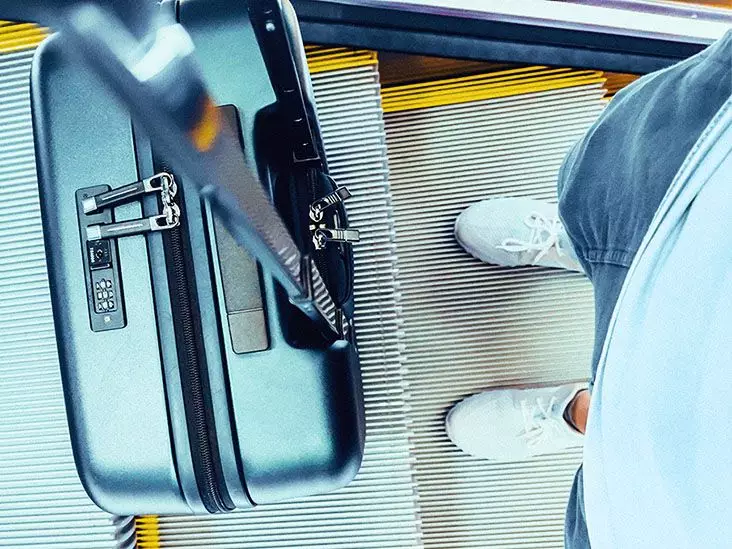Traveling is often associated with adventure, exploration, and new experiences. Yet, for individuals with allergies, it can also be fraught with uncertainty and stress. Allergies are an overreaction of the immune system to seemingly harmless substances, ranging from pollen and pet dander to certain foods and insect bites. While these reactions can be mild, such as sneezing or itchy eyes, they can escalate into life-threatening emergencies like difficulty breathing or swelling. The crux of safe travel for allergy sufferers hinges on meticulous preparation, vigilant awareness, and strategic planning.
The unpredictability of travel environments magnifies the risk of exposure to allergens. From unfamiliar foods to different outdoor plants, the exposure landscape changes drastically from one destination to another. Moreover, ensuring quick access to medication and medical support becomes more complicated in foreign settings. Hence, a proactive approach is mandatory — one that involves both thorough research beforehand and proactive communication during travel.
Laying the Groundwork Before Departure
Preparation begins well before setting foot on a plane or train. Seeing a healthcare professional familiar with allergy management is indispensable. An allergist or travel health specialist can offer tailored advice based on your specific allergies, planned destinations, and activities. Their expertise ensures you’re equipped with the right medications, emergency plans, and preventive measures.
One essential aspect of preparation is ensuring an adequate supply of prescribed medication. Packing more than the expected amount and dispersing medication across multiple bags mitigates the inconvenience of lost luggage or delays. A critical component is obtaining a medical certificate or a detailed note from your doctor, especially if you’re carrying injectable epinephrine or other controlled substances. Different countries have varying regulations on medication import, so having official documentation in the local language can streamline customs procedures and avoid unnecessary confiscation.
Storing medication properly is another overlooked yet vital factor. For instance, epinephrine auto-injectors must be kept at stable room temperature, away from excessive heat or cold. Knowledge about storage requirements ensures medication efficacy throughout the trip. Adjustments might also be necessary if crossing time zones; a healthcare provider can advise on timing and dosage changes to maintain effectiveness.
Addressing Travel-Specific Challenges and Responsibilities
Air travel introduces unique hurdles and opportunities for allergy management. Airlines are increasingly aware and accommodating but require advance communication. Contact the airline beforehand to discuss allergy accommodations — whether it’s special seating arrangements, allergen-free meal options, or cleaning protocols. Throughout the journey, proactively inform airline staff about your allergies, so they can assist in prevention efforts or respond appropriately if symptoms develop.
The Transportation Security Administration (TSA) clarifies that travelers can carry their medications in carry-on luggage, which is crucial for immediate access during emergencies. Label medications clearly with your name, doctor’s contact information, and medication details. Keeping medications in their original packaging isn’t just for regulatory compliance; it also facilitates swift identification during security checks. Sharing this information with trusted companions or family members can serve as an emergency backup.
During the flight, taking extra precautions can markedly reduce allergen contact. Using disinfectant wipes to clean seat trays, armrests, and window sills helps eliminate residual allergens. Avoiding airline pillows and blankets, which often harbor dust mites or pet dander, is a simple but effective tactic. If an allergic reaction occurs mid-flight, immediate administration of medication and alerting the crew are vital. Having a concise emergency action plan can mitigate severity and keep the situation under control until you reach land.
Managing Access to Medication and Healthcare Abroad
Traveling outside your home country complicates access to allergy medications. While many over-the-counter remedies like antihistamines and decongestants are widely available, others such as epinephrine auto-injectors might be harder to find or may require special prescriptions. Accordingly, research local pharmacies and healthcare facilities at your destination in advance.
A crucial step is having a letter from your doctor describing your allergies and medications, ideally translated into the local language. This document not only expedites consultation with foreign medical providers but also helps in case you need emergency treatment. In regions where emergency medical supplies are limited, the cold reality may be that you need to bring all necessary medications with you.
Insurance policies should also be reviewed before traveling. Confirm that your coverage extends internationally and includes prescription medications. If not, consider supplementary travel insurance that provides access to healthcare services and medication reimbursement. In dire situations where access becomes impossible, contacting the embassy or consulate can connect you with trusted medical resources.
Strategic Considerations for a Safe and Enjoyable Travel Experience
While extensive planning is essential, maintaining a flexible mindset is equally important. Recognize that different environments might present unforeseen allergen risks, so adjusted precautions may be necessary. For example, outdoor excursions in pollen-heavy regions may require additional antihistamines or protective gear like masks.
Embracing a proactive attitude transforms allergy management from a source of anxiety into a form of empowerment. Detailed planning, open communication, and vigilant self-care not only safeguard health but also enable you to fully enjoy your journey. Traveling with allergies doesn’t mean missing out; it means navigating with knowledge and confidence. When well prepared, your adventures can be as vibrant and enriching as anyone’s — with the added assurance of controlling your health every step of the way.


Leave a Reply